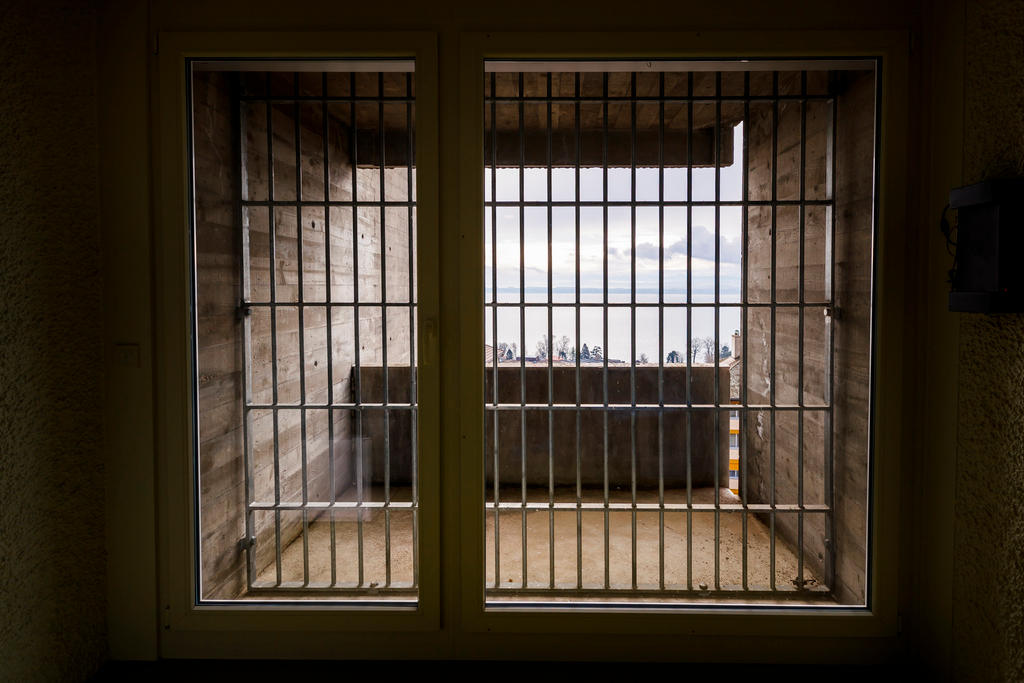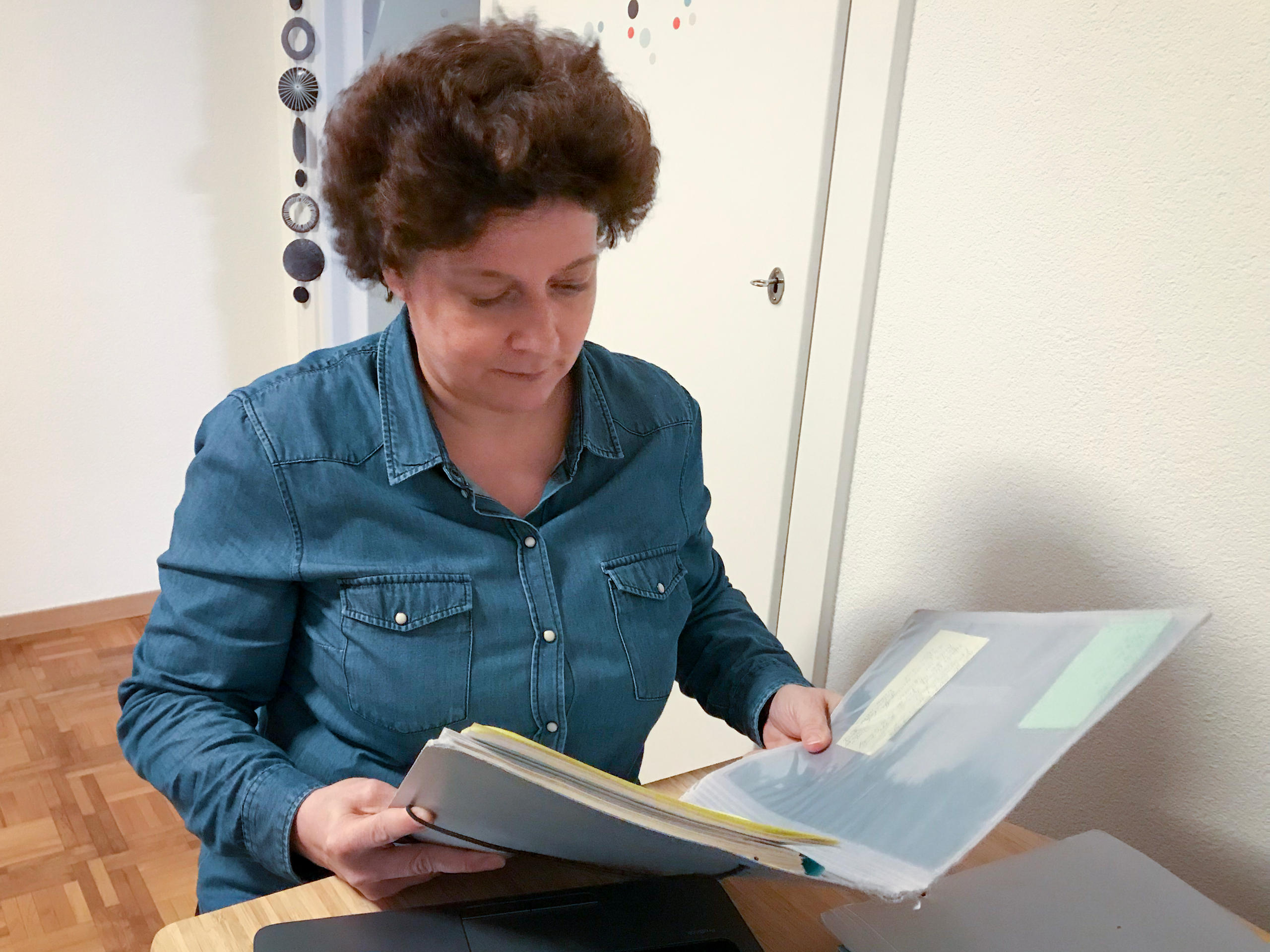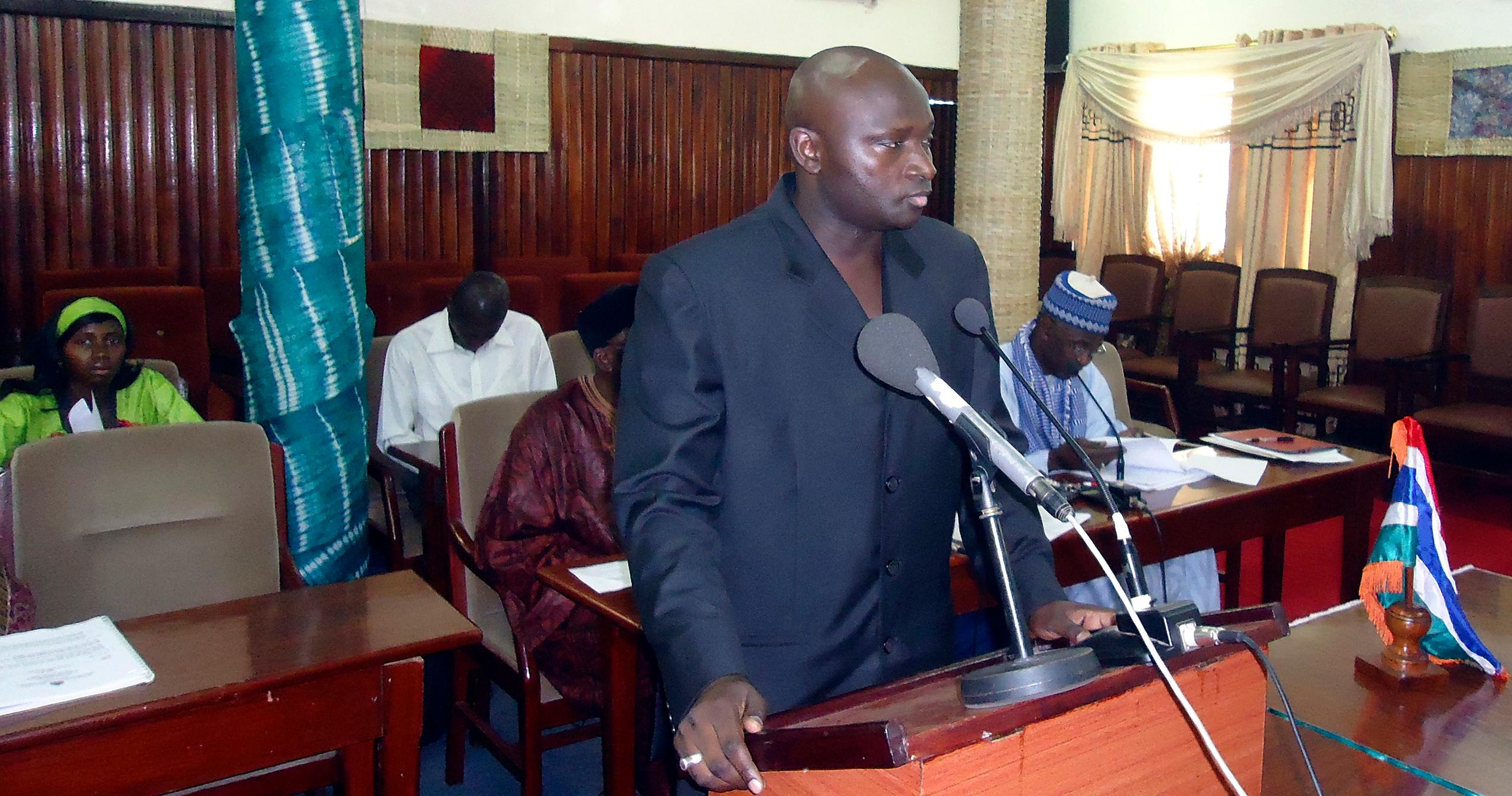
Why Switzerland’s war crimes office is dragging its feet

Seven years after Switzerland’s war crimes office was established, it still has not completed any cases and one of its detainees has been in jail for more than four years without trial. What’s behind the inaction?
Prosecutor Laurence Boillat is a former head of the war crimes unit who says she was fired for thinking the body should do more.
“We were quickly made to understand that the unit was not going to be very important, because we were…not even five full-time posts,” she says. “Yet we were very motivated.”
Currently, two people under investigation by the war crimes unit are in detention, namely former Gambian interior minister Ousman Sonko and former Liberian rebel leader Alieu Kosiah, who has been in jail in Switzerland for more than four years.
Quickly overwhelmed
Changes to Swiss law meant that in 2011 responsibility for international crimes such as war crimes, crimes against humanity and genocide was transferred from the military to the civil justice authorities, namely the Office of the Attorney General of SwitzerlandExternal link (OAG). Boillat, who was already working for the OAG, was asked to set up the war crimes unit. The unit quickly started to receive judicial complaints, mainly from NGOs, especially TRIAL International in Geneva.

But they were soon overwhelmed.
“In this specialised field it is ridiculous to imagine that things could be advanced properly with this small team,” says Boillat, who regrets they were not given more staff resources outside of two prosecutors, two judicial staff and one person in charge of the secretariat.
Under pressure
War crimes cases are specialised and complicated, she points out. Since the crimes were committed outside Switzerland, prosecutors must bring witnesses from the country concerned or travel there to investigate. Boillat says the Attorney General’s office found the means for dealing with economic crimes and terrorism. But staff time was often taken from the war crimes unit to tackle terrorism cases.
Boillat also says there was political pressure from above, especially in cases of “politically exposed persons” like former Algerian defence minister Khaled Nezzar and Rifaat Al-Assad, uncle of the current Syrian president. But such pressure did not exist for investigations concerning asylum seekers in Switzerland, she recounts. As problems accumulated, Boillat says she made it clear that a “spanner was being put in the works” regarding certain investigations. Her bosses then decided they no longer needed her services.
When asked about capacity and political interference regarding the war crimes unit, the Office of the Attorney General pointed to its official responses to parliamentarians’ questions on the subject. There, the OAG responded, among other things, that its “conduct of proceedings and decisions are determined exclusively by the applicable legal system”. It says that it “continues to assume that the means employed in the area of international criminal law are sufficient for the proper performance of its duties”, although an internal review is under way.
Outside criticism
Since Boillat left the Swiss war crimes office at the end of 2015, it has been merged with the mutual legal assistance services of the Attorney General’s Office and still has not brought anyone to trial.

More
Will Switzerland seize opportunity in Sonko and Kosiah cases?
Others have also expressed concern about these proceedings, including TRIAL International and two UN rapporteursExternal link. In April 2018, the UN Special Rapporteurs on Torture and on the Independence of Judges and Lawyers wrote to the Swiss government expressing concern about allegations that the Office of the Attorney General had submitted to political pressure, notably in the Algerian case.
“The persistent allegations of political interference undermine the independence of the judiciary in the name of interests which appear to be neither those of the rule of law nor justice,” they wrote.
In a written replyExternal link, Foreign Minister Ignazio Cassis refuted the allegations and asserted that “Switzerland attaches great importance to the fight against impunity, especially for crimes falling under international law”.
Algerian former defence minister Nezzar was arrested in Switzerland in 2011 after a complaint filed by TRIAL for alleged war crimes between 1990 and 1994. He was released after questioning and returned to Algeria. The OAG dismissed the case in early 2017, saying that there was no evidence of an armed conflict in Algeria during the period in question. At the end of May 2018, the Federal Criminal Court overturned the dismissalExternal link of the Nezzar case. It said there was indeed an armed conflict in Algeria in the early 1990s and ordered the OAG to resume the case.
Most cases dismissed
Parliamentarians from the centre-right Radical-Liberal Party and left-wing Social Democratic Party have also questioned the war crimes unit’s resources and submission to political pressure, particularly in relation to the OAG’s will to pursue the Syria case.
OAG spokeswoman Linda von Burg said more than 60 cases have been referred to the war crimes unit for investigation since 2011, most of which have been dismissed or closed because of “failure to fulfil the contextual requirements laid down by law (e.g. no qualification as a conflict) and/or the requirements for opening proceedings (e.g. perpetrators not in Switzerland)”.
The first case likely to be brought to trial by the unit is that of former Liberian rebel leader Kosiah. This case was brought by Swiss NGO Civitas Maxima, whose director Alain Werner told swissinfo.ch in 2017 that it was “well advanced” and that he hoped to see it brought to trial in 2018. But Kosiah is still waiting in pre-trial detention, where he has been since November 2014.

In compliance with the JTI standards
More: SWI swissinfo.ch certified by the Journalism Trust Initiative































You can find an overview of ongoing debates with our journalists here . Please join us!
If you want to start a conversation about a topic raised in this article or want to report factual errors, email us at english@swissinfo.ch.